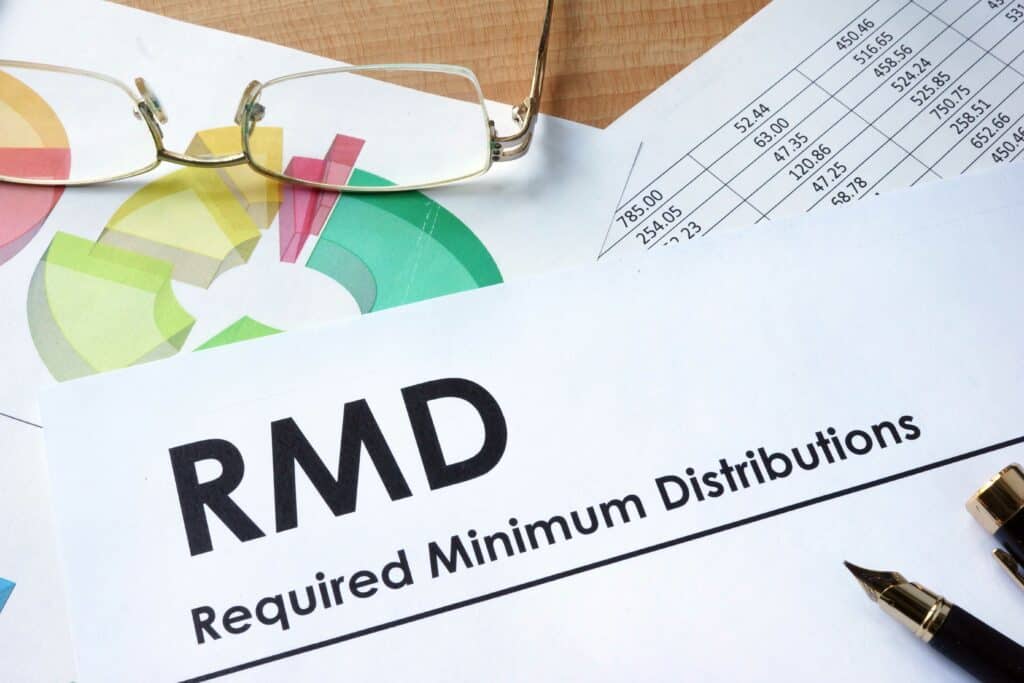
With the holiday season and new year just around the corner, it is a good time to reflect, be thankful for all that you have, and consider how you can give to those in need. This year consider the tax-advantaged way to donate to charity, through a qualified charitable distribution from a Self-Directed IRA. You can donate to your favorite charity, while at the same time reduce your taxable income and offset your required minimum distributions!
Let’s take a deep dive into what a qualified charitable distribution is and how this process can help you achieve tax savings.
A qualified charitable distribution is the direct transfer of IRA funds to a qualified charity. If certain rules are met, it can satisfy your RMD for the year and the amount donated can be excluded from your taxable income.

To be eligible to take a QCD, the IRA owner or beneficiary must be 70 ½ years old or older and hold assets in a Traditional IRA, Inherited Traditional IRA, SEP IRA (inactive plans only), or SIMPLE IRA (inactive plans only).
The tax advantages of a QCD come in two-fold.
Account holders of a tax-deferred retirement account must take required minimum distributions. Account holders may start taking RMDs without penalty at age 59 ½ and must take them annually once turning age 73.
Donating to a charity via a qualified charitable distribution can fulfill your RMD requirement. Account holders may donate all or a partial amount of the RMD to charity.
For example, assume Sarah age 73 has an RMD of $10,000 in 2022. She can choose to donate $8,000 through a QCD and withdraw another $2,000 to satisfy the RMD. Or she may choose to donate all $10,000 and not owe any RMDs in 2022.
It is advantageous to donate to charity via QCD, as the distribution is not subject to federal income tax. Depending on your state you may also be able to receive state tax savings.* This is unlike taking a standard distribution, which is taxable and added to your income the year the withdrawal takes place and may push you into a higher tax bracket.
By donating via QCD, your adjusted gross income (AGI) and tax bracket may be lower.


Assuming you have already opened, funded, and invested your Self-Directed Checkbook IRA at Broad Financial, the first step to make a QCD is to select a charity. Qualifying charitable organizations are described in IRC 170(b)(1)(A). You may choose to donate to multiple charities in the same tax year.

Broad Financial works with our sister company Madison Trust to make the QCD process seamless. Simply complete Madison Trust’s Qualified Charitable Distribution Request Form, declaring the amount of cash or assets to distribute and the charity you would like to donate to.

The check is required to be made payable directly to the charity. If the check is made payable to the Self-Directed IRA owner instead, it would not qualify as a QCD. Our sister company, Madison Trust, will send the check to your mailing address and you will forward it to the charity.
Before making a qualified charitable distribution, it is recommended to speak with a financial and tax advisor to see if it aligns with your investment strategy and goals. When thinking about making a QCD, consider asking yourself the following:
Many investors will likely need their retirement funds to pay expenses and live comfortably when they retire. However, if you are well-off and can afford to donate your funds, a qualified charitable distribution may be for you.
As previously noted, qualified charitable distributions can offset your RMDs and lessen your taxable income. Contrarily, if you take an RMD, instead of a QCD, those funds are added to your income for that year and have the potential to elevate you to a higher tax bracket. To avoid this, a QCD of the full or partial amount of your RMD may be beneficial.

Qualified charitable distributions are reported as a normal distribution on Form 1099-R for non-inherited IRAs. On Form 1040, please state the amount of your distribution in line 4a. Then, in line 4b please enter the difference between the total RMD taken and the QCD given. For example, if your RMD is $8,000 and you donate $2,000, the taxable amount is $6,000. For inherited IRAs, QCDs are counted as a death distribution.
Qualified charitable distributions allow Self-Directed IRA account holders to receive tax savings and fulfill philanthropic desires. This giving season, consider how you can donate to those in need in the most tax-advantageous way possible.
Do you have any questions about qualified charitable donations? Enjoy a free complimentary call from a Broad Financial Self-Directed Checkbook IRA Specialist today!
* State and local income tax rates and the treatment of charitable contributions for state and local tax purposes are subject to change. Please consult your tax advisor for information about the possibility of state tax savings in your state.
Disclaimer: Broad Financial LLC does not provide legal, tax, or investment advice. Please consult with your tax or legal advisor before making investment decisions.
Address:
One Paragon Drive
Suite 270
Montvale, NJ 07645
Phone: (800) 395-5200
Mondays – Thursdays: 8:00 am – 6:00 pm EST
Fridays – 10:00 am – 4:00 pm EST